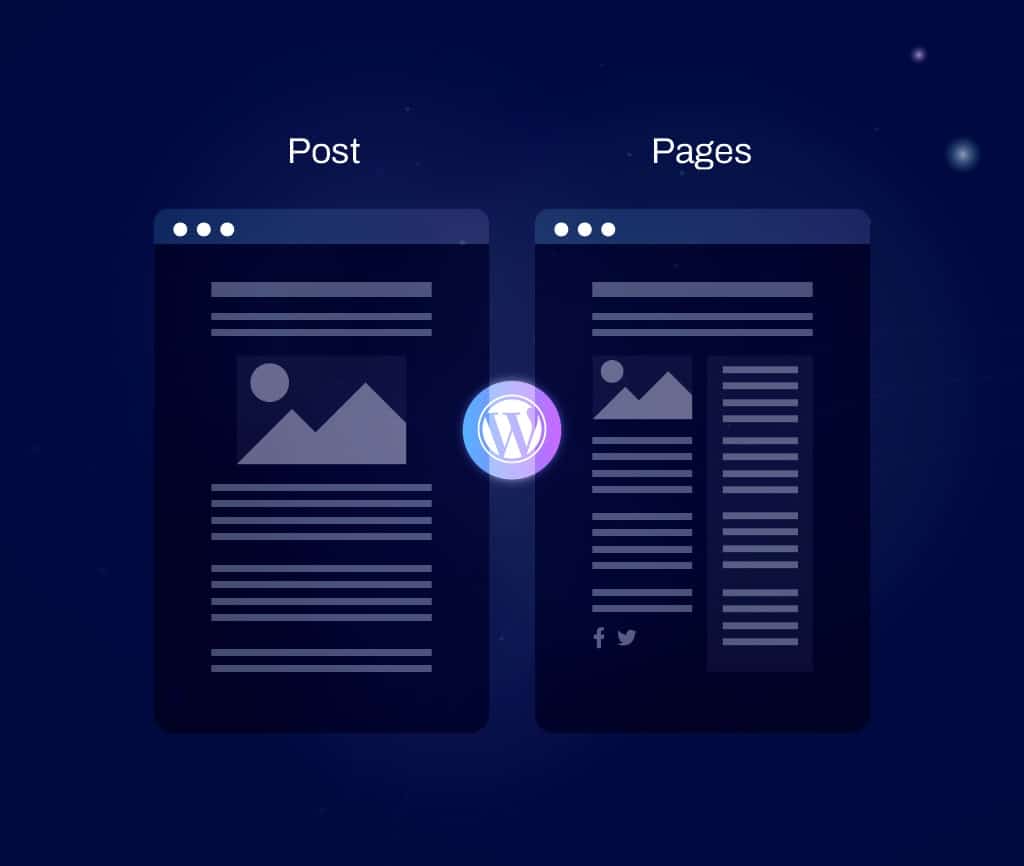Development
9 minute read
SEO Meaning: What Does SEO Mean for Your Website?.
LAST UPDATED:
May 14, 2024


Have you ever wondered why some websites turn up at the top of your search results while others seem not to exist? That’s SEO at work!
And no, it’s not an extraterrestrial language.
SEO stands for search engine optimization — and understanding how it works is key to bringing more website visitors your way.
This blog post will tackle all the hard questions about SEO:
- What is it?
- How does it work?
- What are the most common mistakes?
- How can you use SEO to get your website seen by more people?
Let’s put on our search engine hats and get started on our journey together — ready, set… SEO!
First, let’s talk about SEO and search engines.
Search engine optimization (SEO) is optimizing your website content and structure to make it easier for search engines like Google, Bing, and Yahoo to find it.
This helps your site rank higher in SERPs (search engine results pages) when people are searching for terms that are related to what you offer.
In other words, SEO is essential in any web development project since it increases your visibility and reach.
SEO works by helping search engines understand your website so they can display it for relevant searches.
To do this, some aspects of your website need to be optimized if you want it to appear higher in SERPs. These elements include:
- Titles
- Descriptions
- Keywords
- Page speed
- Internal links
- Backlinks
- Images
A well-structured website with high-quality content is also essential for successful SEO.
The better content you have on your site — written with strong keywords — the better your chance of ranking higher in SERPs.
Search engines are complex, and it’s hard to understand how SEO strategies work in your favor.
However, there are several ways that SEO can help your website rank higher in SERPs.
Let’s take a look at some of them below.
Keyword Research and Analysis
One of the most critical steps in optimizing your website for search engines is keyword research and analysis.
Identifying the right keywords to include in your content is essential for increasing visibility on SERPs.
It’s essential to use keywords that accurately reflect what potential customers are looking for and those with a high search volume so more people will see them.
You should also ensure that these keywords are placed strategically throughout your content to optimize its relevance to those searching for them.
Content Creation and Optimization

Creating content that reflects the keywords used in keyword research is vital in optimizing your website for SERPs.
The content should be informative and engaging, so visitors stay on your page longer, resulting in higher rankings on SERPs.
Additionally, ensure that each page has a clear call to action (CTA) so visitors know where to go next or take action if they want to purchase something from you.
Also, remember image optimization! Images can also help improve rankings on SERPs because they provide additional information about what a webpage contains.
Backlink Building and Cleanup
Backlinks are another important aspect of SEO because they show search engines that other websites view yours as credible and trustworthy.
This can result in higher rankings on SERPs since Google views websites with more backlinks as being more relevant than those without them. It’s vital not only to accumulate backlinks but to manage backlinks effectively.
Additionally, ensure that any backlinks you have pointing toward your site are clean — meaning there isn’t anything malicious or spammy associated with them — otherwise, they could hurt your rankings instead of helping! You can use this toxic links detector from WebCEO to find and remove backlinks that could harm your website’s rankings.
Mobile Optimization and Structured Data
Mobile optimization is another critical factor for ranking higher on SERPs.
This means optimizing all aspects of user experience on mobile devices — such as page speed load times — so potential customers don’t get frustrated while browsing your website on their phones or tablets.
Additionally, in Google SEO, structured data helps Google understand what type of information is contained within each web page to index it in its algorithms for better SERP rankings accurately.
One of the most important things you need to remember is that it’s easy to commit mistakes in SEO.
We’ve seen a fair share of websites commit errors in their SEO and hurt their search engine visibility.
Because we don’t want you to fall into the same traps, we’ve compiled the most common SEO mistakes you must avoid at all costs.
Not Optimizing for Mobile

With the rise of smartphones and tablets, more people are accessing the internet from their mobile devices than ever before.
To make sure your website looks great on any device, use a responsive web design that automatically adjusts for different screen sizes and resolutions.
Mobile optimization should be on your checklist if you plan a website redesign.
Not Keeping Track of Keywords
Effective keyword research is essential to successful SEO campaigns. It helps you understand what terms and phrases people use when searching for products or services in your industry.
Without tracking these keywords, you won’t be able to optimize content around them — so make sure you track your keywords regularly to stay up-to-date with search behavior changes.
Keyword Stuffing
While including keywords in your content is essential, you should avoid “keyword stuffing.”
This is when websites try to rank for a keyword by having it numerous times throughout the page or post.
This makes content unreadable, and search engines will penalize sites that use excessive keywords to manipulate rankings.
Stick to quality content that uses keywords naturally and only where they add value.
Not Utilizing Internal Links
Internal links help search engine crawlers understand the structure of your website and the relationships between pages on it — which makes it easier for them to index those pages and boost their rankings in the SERPs.
Internal links also help keep visitors on your site longer by providing easy navigation between related content — suitable for user experience and SEO performance!
Good SEO involves consideration for the reader who has performed a search query and wants their question answered. By giving the reader the exact info they need—interlinked with other related info on your site—you make the reader AND Google algorithms happy.
Jacob Andra, Founder, Customer Faucet
Duplicate Content

Duplicate content is, as the name implies, content that appears multiple times across different websites.
Google penalizes sites for duplicate content because it can signal to search engines that there’s a lack of originality and value being provided.
To avoid getting hit with this penalty, always create unique, high-quality content that adds value to your readers.
If you must use the same material from another source, cite the source in your post or page properly.
Enough of the mistakes you can commit with SEO.
Here are the best practices you need to do to ensure the success of your SEO strategies.
Create High-quality, Relevant Content
Quality content is at the very core of any successful SEO strategy.
Quality content provides an engaging experience for readers, establishing trust and encouraging them to spend more time on your site.
It also serves as the foundation for other SEO aspects, such as keyword optimization and backlink building.
One of the best practices for WordPress SEO (and even other CMS platforms) is to use targeted keywords in new and existing pieces to get the most out of your content.
Beyond just helping boost your SEO ranking, good content will also:
- Build trust with readers
- Increase their engagement with your website
- Provide valuable information that keeps them coming back for more
These are all essential if you want to cultivate meaningful relationships with your leads.
Naturally Include Keywords Throughout Your Content and Website
Keywords can be like the “spices” of your content — too few, and it’s bland; too many, and you can overwhelm your readers! But the right number? Well, that’s a different story.
When building SEO for a new website, keywords help pages rank higher on search engines.
Changes in SEO algorithms mean that you must be flexible with your keyword usage and consistently refresh your backlinks to stay up-to-date with these changes.
Using keywords throughout your content will increase its backlink validity and give readers more of what they’re looking for — making everyone a winner!
Regularly Review and Update Your SEO Strategies

SEO is constantly evolving — when it does, you don’t want your content to stagnate in the dark ages.
It’s essential to stay up to date on best practices and monitor how people interact with your website if you want to gain the upper hand.
This can help you make changes quickly and keep your business ahead of the competition!
If you think this is a once-and-done kind of thing, think again. SEO is an ongoing process that requires regular tuning.
Remember to track keyword rankings, adjust content accordingly, and stay current with industry updates.
Keep a Close Eye on SEO Best Practices and Search Engine Algorithms
Finally, you must understand the most current best practices and algorithms that major search engines use.
SEO is no longer the new kid on the digital marketing block. It’s here to stay, so understanding search engine best practices and algorithms is critical if you want your website to maximize its online visibility.
After all, nothing draws organic traffic like a well-structured, user-friendly site that follows popular industry trends.
Furthermore, checking what keywords are working best for you will help determine if you can still update your website to optimize keywords better.
Whether it’s for eCommerce SEO or something else, it’s always a good idea to stay on top of what’s new and working in SEO.
Also, integrating APIs like the Google Trends API can offer valuable insights into trending topics and keywords, enabling you to tailor your content to match current interests and maximize its visibility.
The amount of time it takes for a website to see SEO results depends on several factors, such as the website’s size, how competitive the industry is, and more.
However, it’s important to remember that achieving SEO success is not an overnight process. Instead, it involves an ongoing effort to optimize your website for search engine rankings.
The key is consistently optimizing and improving your website’s SEO — even small amounts of effort can make a big difference once they add up.
Remember to stay on top of your progress. Analyzing data from tools like Google Analytics will give you actionable insight that let you make better-informed decisions about how best to guide your SEO performance in the weeks and months ahead.
Implementing an effective SEO strategy doesn’t have to be complicated — start with these basics, and you’ll be on your way to increased organic traffic and visibility for your website.
If you need help getting started or want more information on effective SEO strategies, our team at Huemor is here to help.
We’re experts in digital marketing, from web design and development to content creation and everything in between.
Contact us today to learn more about how we can help improve your website’s SEO and get you on the path to increased organic traffic and visibility.
Get Memorable Insights.
Sign up to receive actionable web design advice directly in your inbox monthly.
Get Memorable Insights.
Sign up to receive actionable web design advice directly in your inbox monthly.
Author
Jeff Gapinski is the President of Huemor where he helps plan the long-term strategic growth of the agency. Jeff is passionate about UI/UX, demand generation, and digital strategy.
What Do You Think?
Have feedback? Maybe some questions? Whatever it is, we'd love to hear from you.








1 Comment
Understanding SEO is crucial for any website owner. SEO, or Search Engine Optimization, essentially determines how easily your site can be found by users through search engines. It's not just about keywords; it's about crafting a user-friendly experience that search engines love. Mastering SEO means increased visibility and traffic, ultimately leading to greater success for your online presence. Thanks for shedding light on this important topic!